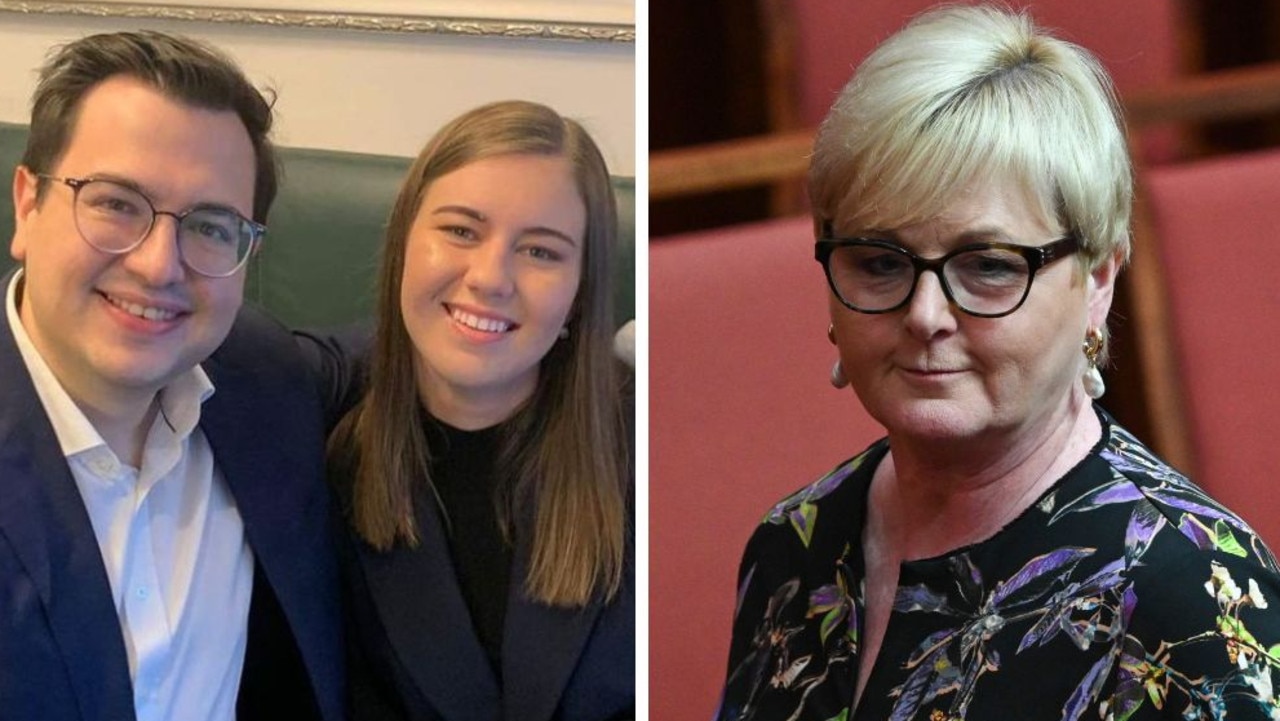Liberal Senator Linda Reynolds won’t have to fork out hundreds of thousands of dollars as a security on potential legal costs for Brittany Higgins’ fiance in her defamation lawsuit against him.
WA Supreme Court Justice Marcus Solomon on Friday ruled against a security for costs order, in which a plaintiff is ordered by the court to put up cash or collateral to show a defendant’s legal costs can be covered in the event the defamation suit fails.
Senator Reynolds, who is from Western Australia, is suing former Canberra journalist and media adviser David Sharaz over a series of five social media posts the Senator alleges defamed her character.
She has also taken similar legal action against Brittany Higgins, who is Mr Sharaz’s fiance, and Ms Reynolds’ former staffer.
In a hearing for the security for costs order, held in the same court on Thursday, Mr Sharaz’s lawyer Jason MacLaurin argued Senator Reynolds could be made “financially uncomfortable” by her other defamation suit, and potential future suits that could be brought against Federal Minister Tanya Plibersek and fringe political commentator Shane Dowling.
Mr MacLaurin argued the cost of multiple legal battles, compounded by any potential losses in court, would make it difficult for Senator Reynolds to cover his client’s costs.
He told the court the matter would “end in tears financially” for all parties.
In his decision on Friday, Justice Solomon noted while Senator Reynolds is financially comfortable, the costs of the lawsuit would be “very significant, perhaps crippling,” – but that this is “hardly a unique feature of this proceeding.”
“On the contrary,” he writes, “it is an unfortunate but common feature of contemporary litigation.”
He ruled this does not provide a basis to order security for costs – and Senator Reynolds already had reason to take seriously the potential of being liable for an eye-watering bill at the end of procedings.
Justice Solomon noted Section 44 (iii) of the Constitution was a “strong disincentive” to the Senator to not pay Mr Sharaz’s costs, should she be ultimately unsuccessful in the case.
The Constitution section declares anyone who “is an undischarged bankrupt or insolvent” is ineligible to be a member of federal parliament.
Section 44 wrought havoc among federal parliamentarians in 2017 when it was revealed anyone with a dual-citizenship was also ineligible to sit, claiming the jobs of nine Senators and MPs by the end of that year.
Speaking to the parties at a hearing on Thursday, Justice Solomon urged both parties to resolve the issue in mediation, which he’s tentatively set down to occur in December or January, pending the parties’ availability.
In a postscript to his decision, Justice Solomon reiterated those sentiments, writing: “money is not the only, and probably not the biggest cost.
“The human cost of litigation looms large.
“As in all matters, the court urges, and is anxious to assist the parties to explore means of resolving the dispute without the necessity of a trial.”
